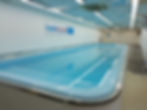Chloramines: Understanding “Pool Smell & why you itch?"
- Feb 19, 2018
- 3 min read

Pool smell is due, not to chlorine, but to chloramines, chemical compounds that build up in pool water when it is improperly treated, usually due to low chlorine level or unbalance pH level hat render the chlorine ineffective.
Chloramines result from the combination of two ingredients:
(a) chlorine disinfectants and
(b) perspiration, oils and urine that enter pools on the bodies of swimmers.
What pool manager will termed as Combined Chlorine
IT IS THE REASON FOR THE SKIN ITCH as the chloramines sticks on the body if it rinsed off properly. They can also be a source of irritation to the eyes, lungs and skin of our patients.If you have the correct level of chlorine in your pool you should rarely be able to smell it.
Chlorine disinfectants are added to pool water to destroy germs/ bacteria. Perspiration, oils and urine, however, are unwanted additions, brought by dogs into the water pool.
Minimizing Pool Smell
Swimmers with reddened, irritated eyes have been known to complain that "there is too much chlorine in the pool". In fact, however, when pool water is irritating, there is not enough chlorine in swimming pool water!
You may be surprised to learn that there is no odor to a well-managed pool. Put your hands into the water and take a sniff. Free Chlorine itself does not have any smell.
Chloramines, which produce pool smell, can be eliminated using chlorine. "Shock treatment" or "super chlorination" is the practice of adding extra chlorine to pools to destroy ammonia and the organic compounds that combine with chlorine to make chloramines. To efficiently destroy chloramines through shock treatment, the pool water concentration must be about ten times.
In addition, @Hydro Canine, we have installed the brand new technology to the swimming pool industry with the benefit of being used and approved by high profile industries such as hospitals and drinking water purification companies. The photocatalytic oxidiser uses new NanoCrystal technology and able to reduce residual chemicals such as chlorine significantly. The photocatalytic oxidiser is entirely safe and substantially more powerful than chlorine or ozone. Photocatalytic Oxidisation has an immensely powerful effect with the ability to instantaneously destroy viruses, bacteria and pathogens, and more astoundingly possessing the ability to convert oil, urea and other contaminants back into their harmless molecular form. Meticulously designed, not only does it eliminate undesirable side-effects such as sore eyes, itchy dry skin, discoloured hair and strong odours, but it also makes water crystal clear, and most importantly it creates no risk to the lungs or health of swimmers
Pool Rules
Properly disinfected pool water is a must for the health and safety of swimmers. Pool managers have the responsibility to adjust the pool water chemistry to reduce the risk of infection for swimmers. But you can use your senses to help you determine whether a pool is safe for swimming.
The "SENSE-ABLE" Swimming Check List
USE YOUR SENSE OF SIGHT. Does the pool water look clear and blue? You should be able to see through the water down on the floor of the pool. If the water is cloudy and colored, there may be algae in it.
USE YOUR SENSE OF TOUCH. Does the pool wall around the water line feel slimy? If it does, there are probably germs living on the wall.
USE YOUR SENSE OF SMELL. Is there a strong chemical odor around the pool? Put your hands into the water and take a sniff, if you smell chlorine odor, the chloramines level is high. The fact is not because the water has too much chlorine (Chlorine/ Free Chlorine itself does not smell), BUT there is TOO MUCH COMBINED CHLORINE/ Chloramines in the water.
















